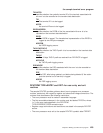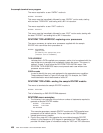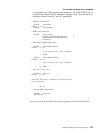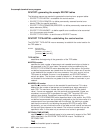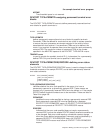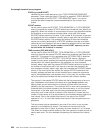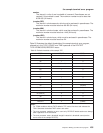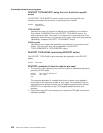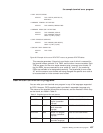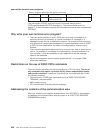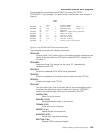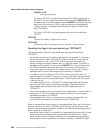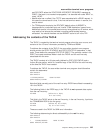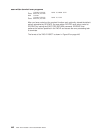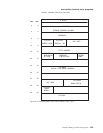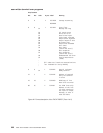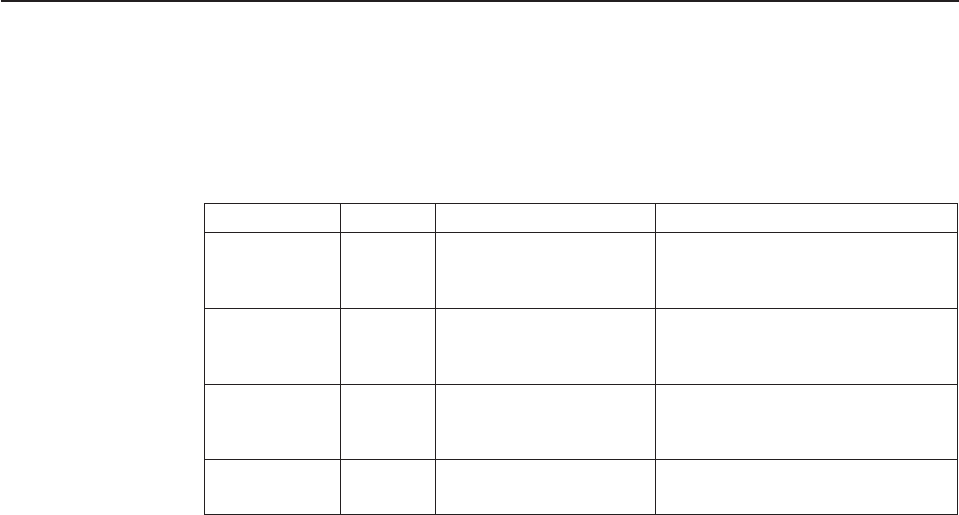
This example generates 10 terminal error blocks, one of which is reserved for
the terminal whose symbolic ID is TM02, and the other nine are reusable. Each
TEB has space for five error status elements plus a common error bucket. Of
the five ESEs, two are reserved for error codes ‘81’ and ‘87’; the remaining
ESEs are available to be assigned dynamically. The thresholds for error code
‘87’ and the common error bucket are being changed. No specific error code is
to be accounted for in the common error bucket.
User-written terminal error programs
You can write your own terminal error program in any of the languages supported
by CICS. However, CICS-supplied code is provided in assembler language only.
The names of the supplied source files and macros, and the libraries in which they
can be found, are listed in Table 21.
Table 21. Supplied source files and macros
Name Type Description Library
DFHXTEP Source Sample terminal error
program (assembler
language)
CICSTS13.CICS.SDFHSAMP
DFHXTEPT CSECT Sample terminal error
tables (assembler
language)
CICSTS13.CICS.SDFHSAMP
DFHTEPM Macro Sample TEP program
generator (assembler
language)
CICSTS13.CICS.SDFHMAC
DFHTEPT Macro TEP table generator
(assembler language)
CICSTS13.CICS.SDFHMAC
* TABLE SPECIFICATIONS
DFHTEPT TYPE=INITIAL,MAXTIDS=10,
MAXERRS=5
* PERMANENT TERMINAL DEFINITIONS
DFHTEPT TYPE=PERMTID,TRMIDNT=TM02
* PERMANENT ERROR CODE DEFINITIONS
DFHTEPT TYPE=PERMCODE,CODE=81
DFHTEPT TYPE=PERMCODE,CODE=87,
COUNT=2,TIME=(1,MIN)
* OTHER THRESHOLD OVERRIDES
DFHTEPT TYPE=ERRCODE,CODE=BUCKET,
COUNT=3,TIME=(3,MIN)
* CONCLUDE TABLE GENERATION
DFHTEPT TYPE=FINAL
END
Figure 20. Example of the use of DFHTEPT macros to generate DFHTEP tables
the sample terminal error program
Chapter 8. Writing a terminal error program 437



